YOUNG SHELDON 小谢尔顿
万宇婧
不難想象,看这部新剧的观众八成都是《生活大爆炸》或谢耳朵的粉丝。作为一部衍生剧,刚.上路时蹭原作的高人气无可厚非,不管是开头吉姆·帕森斯的倾情配音,还是火车、霍金、质子博士等诸多人物元素的亮相,都足够博得老粉们会心一笑。小谢尔顿虽然只有9岁,却提前破格升入高中,他所关注的领域极其广泛,其中不乏各种专业名词。小编挑选了家庭与学校这两个场景,剧本简单易读,非常适合学习与模仿。
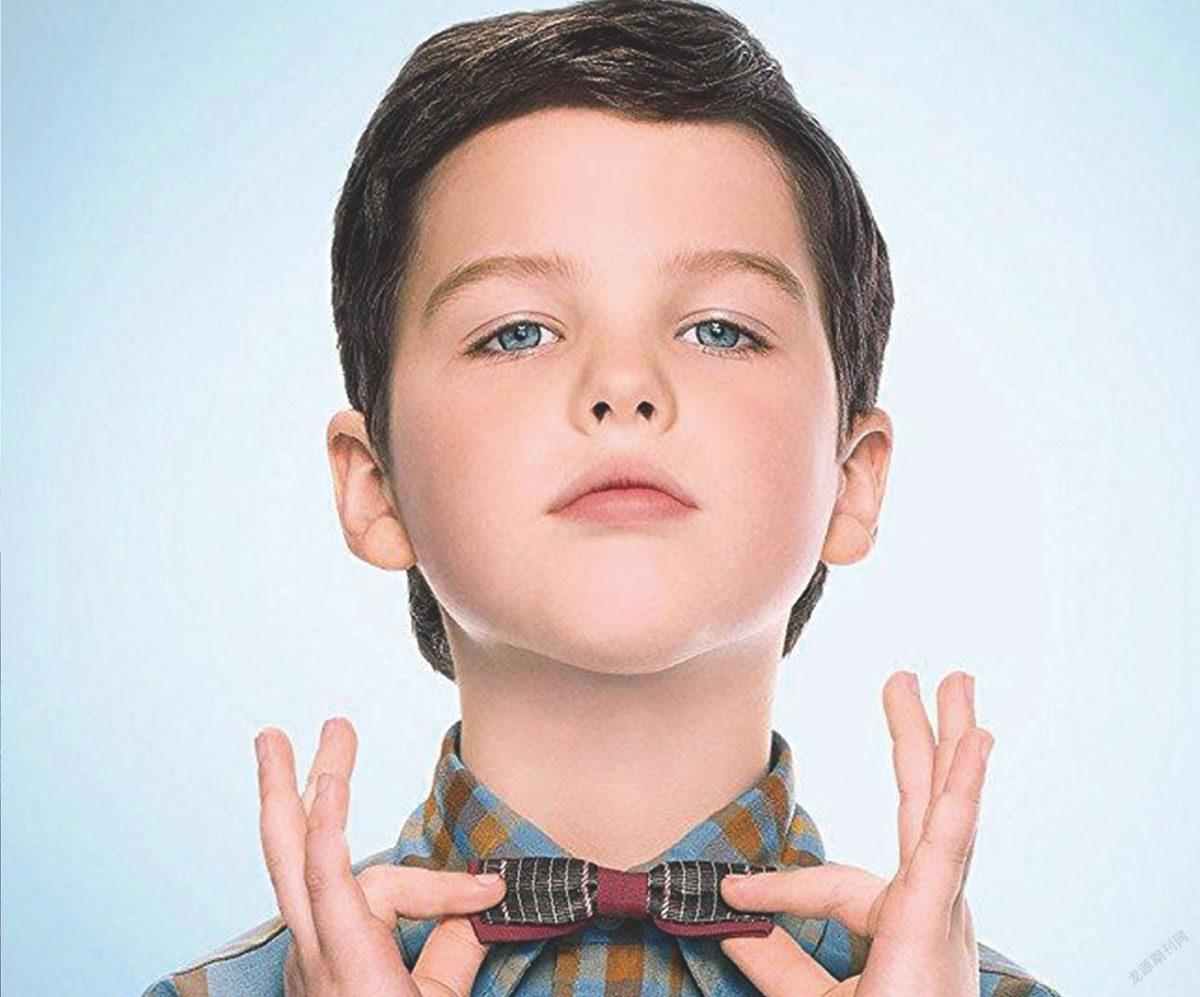
《小谢尔顿》是《生活大爆炸》的衍生剧,顾名思义就是以谢尔顿·库珀为主角。该剧于2017—2018 年度播出第一季,2019年播出第二季。这部喜剧的主角是9岁时的谢尔顿,剧集以《马尔柯姆的一家》的单镜头家庭喜剧方式制作,讲述谢尔顿当年在德克萨斯州东部的家庭及学校生活。可一部新作品真想要成功,就必须得有独特性。《小谢尔顿》也确实立志、创新,它不是搭场景配上笑声的情景喜剧,而是正儿八经的家庭轻喜剧。
剧情介绍:1989年德克萨斯州过得并不容易的小中产家庭是什么样?看看库珀一家就行了。爸爸乔治是个不得志的高中橄榄球队教练,妈妈玛丽是个操心一切的家庭主妇兼虔诚教徒,哥哥小乔治是个刚发育脏兮兮的青春期男孩,双胞胎姐姐米希则是个古灵精怪毒舌没完的小萝莉……小谢尔顿的日常就是和这群“类人猿”一起生活、成长。
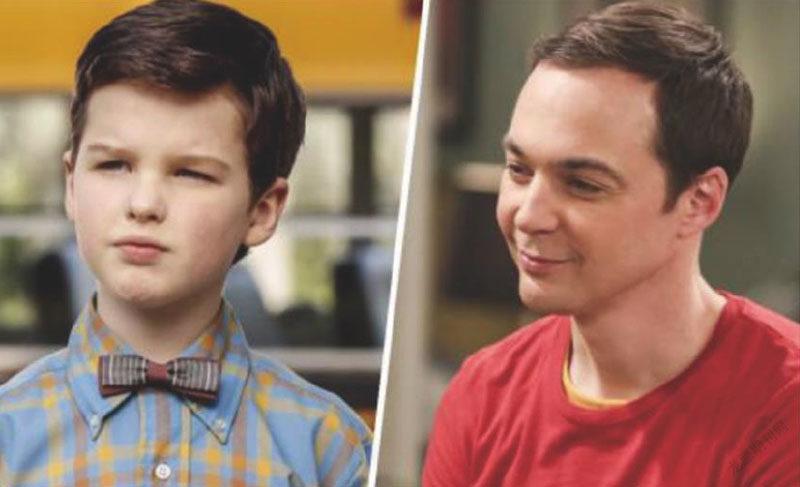
第一季第一集开头以成年的谢尔顿旁白为导入,有大家熟悉的小火车。天才少年谢尔顿与家人之间的日常互怼很有爱,大家不妨边听边读,感受这可爱的家庭氛围。
Sheldon(Adult):I always loved trains.In fact, if my career in 1)theoretical physics hadn't worked out, my backup plan was to become a professional ticket taker.Or hobo.And when I figured out that trains allowed me to proveNewton's first law, an object in motion stays in motion with the same speed and in the same direction unless acted upon by 2)unbalanced force.I felt like Neil Armstrong on the moon, alone and happy.
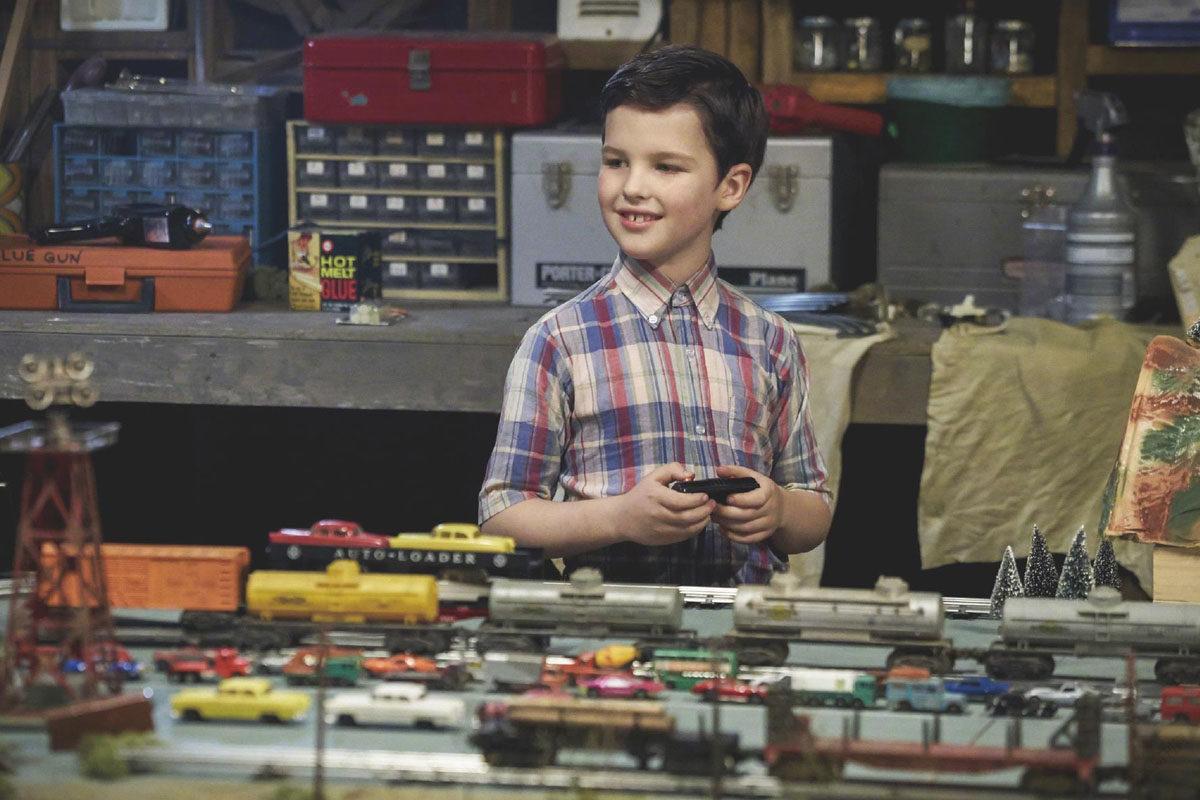
Mom:Shelly, dinners ready!
Sheldon(Adult):I don’t care how dimwitted you are.Scientific principles have to make you smile.Of course nobody i knew in east Texas in 1989 cared about Newtonian physics.The only newtons they cared about were wayne and Fig.
Sister:Sheldon, if you don t get in here, I'm gonna lick your 3)toothbrush!
Sheldon(Young)Coming!
Sheldon(Adult):That s my sister And she's done it before.
Father:What the hell were you doing out there?
Mother:George, language.
Father:What language?So?
Sheldon(Young):I was exploring dimensional kinematics.
Brother:Admit it, he’s adopted.
Sheldon(Young)How can I be adopted when I have a twin sister?Think, monkey, think!
Mother:Thats enough no ones adopted.
Sister:I wish I was.
Mother:That can still be arranged.Now, let’s pray.
Sheldon(Young)A moment, please
Mother:Leave him be.
Father:He can hold hands with his family.It won t kill him.
Sheldon(Young)We don't know that.Georgie, did you wash your hands before dinner?Or even this week?
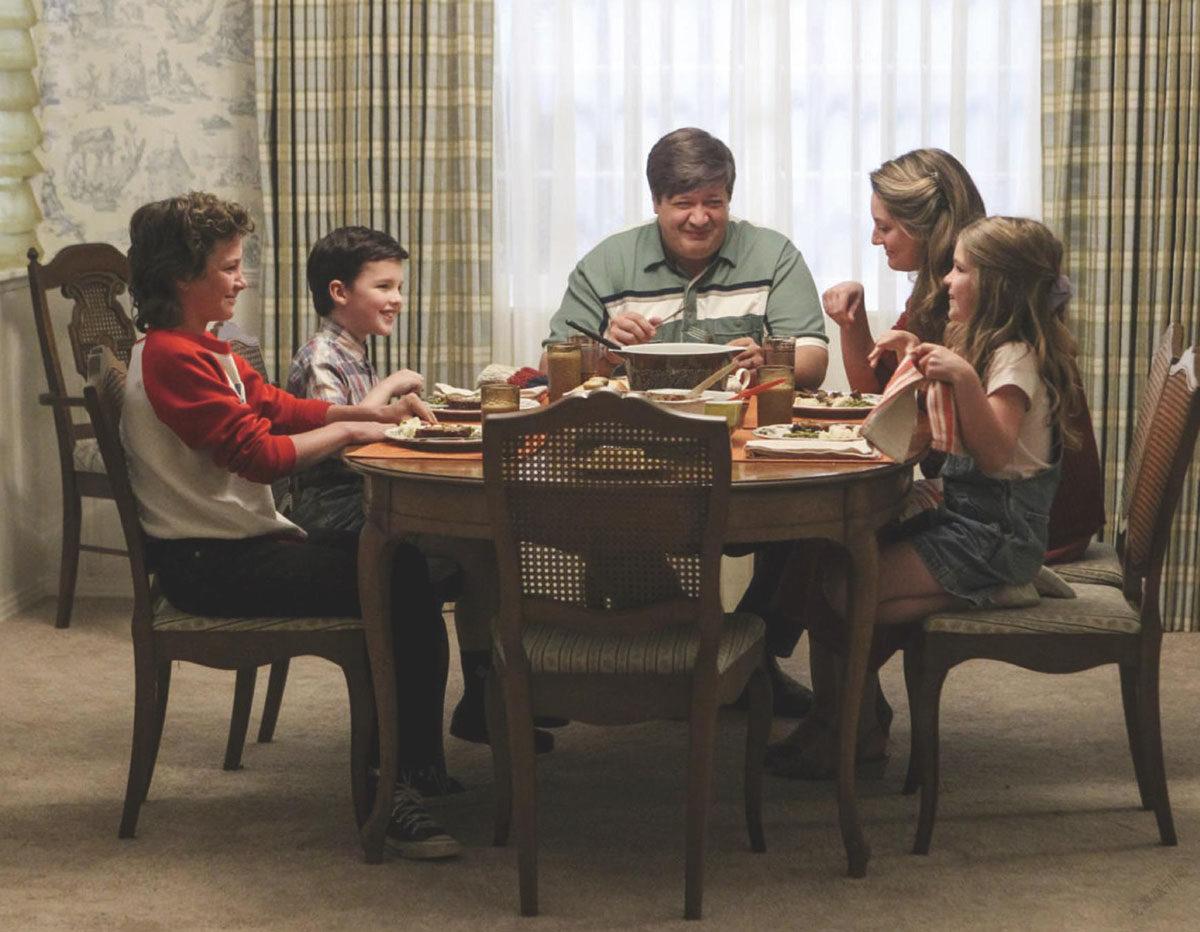
Brother:None of your business.
Sheldon(Young)Hence the 4)mittens.
Mother:Thank you, God, for this food we re about to receive and for the nourishment of our bodies, and bless the hands that prepared it.Amen .
Brother:How come we ain’t got no tater tots?
Mother:I made tater tots last night.
Brother:Id take tater tots over mashed potatoes any day.
Mother:Just eat what i made you.
Brother:Can we at least have tater tots tomorrow?
Sheldon(Adult):It was family dinner like this, that led me to adopt a mid-Atlantic accent.Nobel Prize winners ought not be ordering tater tots.
Mom:Everybody excited to start school Monday?
Sheldon(Young):I am.
Sister:i guess so.
Mom:Georgie?Freshman year that ' s a big deal.
Brother:How can i be excited when he s gonna be in the same grade as me?
Sheldon(Young):Don't worry, Georgie I' m not planning on being the ninth grade for very long
Sister:All I know is hes not in the same grade as me anymore and I, ’m thrilled.
Sheldon(Young)Good luck with your finger painting.
Sister:You're gonna get your ass kicked in high school.
Mom:Hey, language.
Sheldon(Young)I' m not going to be assaulted.
High school is a haven for higher learning.
Father:Oh dear God.
1)theoretical[eio'retk]adj.理論的
2)unbalance[An" balers]v.使失去平衡
3)toothbrush[tu:ebrn.牙刷
4)mitten[mitn]r.露指手套
词组加油站
figure out
解决,算出
care about
担心,关心
谢尔顿(成年):我从小喜欢火车。事实上,如果我理论物理学的工作干不下去了,我的后备计划就是打算当一个职业检票员,又或者是,流浪汉。当我发现火车能让我证明牛顿第一定律:任何运动中的物体其速度的大小与方向都不会改变,除非有外力施加于这物体。我感受到了尼尔·阿姆斯特朗登月时的那种既孤独又快乐的感觉。
妈妈:谢利,晚饭做好了。
谢尔顿(成年):我不管你有多笨,但是科学原理肯定能让你笑开怀。当然,我1989年在德州东部所认识的人当中,没有人把牛顿物理学当一回事。他们唯一在意的“牛顿”是艺人维恩·牛顿与牛顿饼干。
姐姐:谢尔顿,你要是再不来,我就去舔你的牙刷。
谢尔顿(少年):马上来!
谢尔顿(成年):那是我姐姐。她已经不是第一回干这事儿了。
爸爸:你窝在房间里干什么?
妈妈:乔治,说话文明一点。
爸爸:我哪里不文明了?所以呢?
谢尔顿(少年):我在研究维运动学。
哥哥:承认吧,他是领养来的。
谢尔顿(少年):我有个双胞胎姐姐,我怎么可能是领养的。用脑啊,猴哥,用用脑子!
妈妈:够了,没人是被领养的。
姐姐:真希望我是。
妈妈:现在找人来领养你也还来得及。现在,来祷告吧!
谢尔顿(少年):稍等一下。(戴上手套)
妈妈:随他去吧。
爸爸:跟家人握个手而已,又不会死。
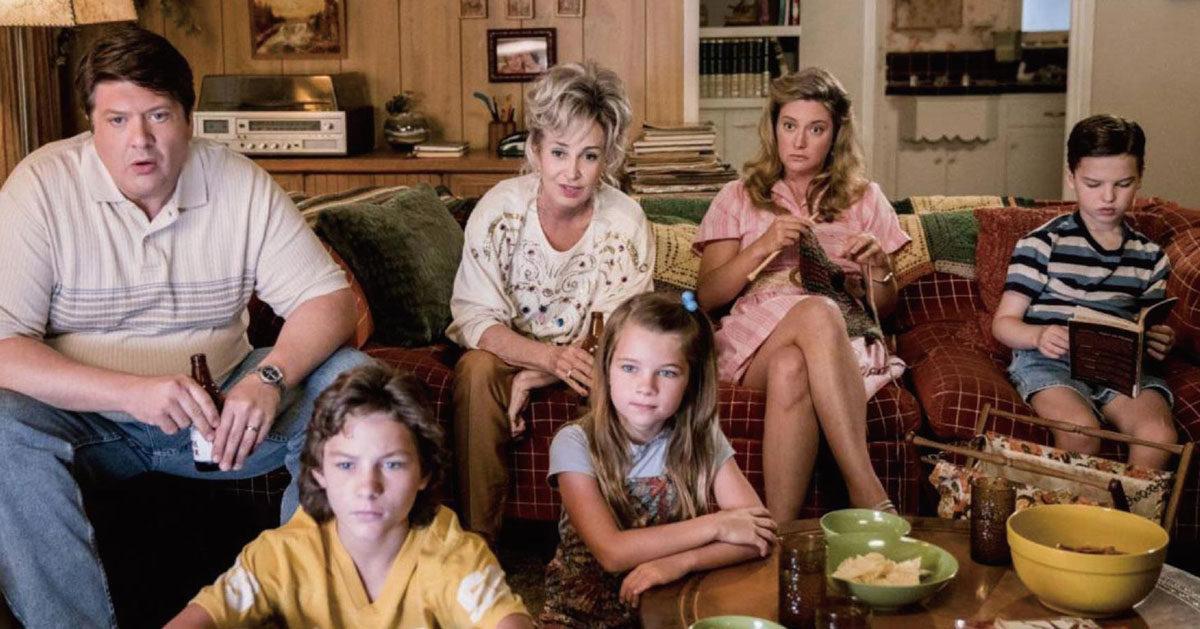
谢尔顿(少年):这可不好说。小乔治,你吃晚饭之前洗手了吗?或者说,你这周洗过手吗?
哥哥:关你什么事啊!
谢尔顿(少年):所以我戴手套啊。
妈妈:感谢主,赐予我们桌上的食物,为我们身体提供营养,也保佑那个做饭的人。阿门。
哥哥:为什么没有炸薯球?
妈妈:我昨晚做过炸薯球了。
哥哥:我永远都会选炸薯球而不是薯泥。
妈妈:我做什么你就吃什么。
哥哥:我们明天能吃炸薯球吗?
谢尔顿(成年):因为这样的家庭晚餐,让我学会了大西洋中部口音。诺贝尔奖得主是不应该吃炸薯球的。
妈妈:有人期待周一开学吗?
谢尔顿(少年):我!
姐姐:大概吧。
妈妈:小乔治呢?上高一啊,这可是件大事。
哥哥:当我想到他(谢尔顿)要跟我读同一个年级,我就高兴不起来。
谢尔顿(少年):不要担心啦,小乔治,我也没打算在高一待太久。
姐姐:反正他(谢尔顿)不再跟我读同一年级,我真是高兴坏了。
谢尔顿(少年):祝你上课画手指画玩得开心。
姐姐:你在高中绝对会被人扁得屁滚尿流。
妈妈:注意用词!
谢尔顿(少年):我才不会被揍呢。高中可是高等教育的殿堂。
爸爸:我的神啊。
名师考点解析
宾语从句
剧本原文:Just eat what I made you.
置于动词、介词等词性后面起宾语作用的从句叫宾语从句。宾语从句的语序必须是陈述语序。谓语动词、介词、动词不定式、动词ing形式后面都能带宾语从句。有些形容词(afraid, sure, glad等)之后也可以带宾语从句。
学习宾语从句要抓住三要素:连接词、语序和时态。这里我们主要学习连接词:
1.从句为陈述句,常选择连接词that或将that省略,直接与主句相连;
2.从句为一般疑问句,常选择连接词if或whether。 在whether…or not结构中不能用if替换;3.从句为特殊疑问句,常选择what, when, where, which, who, how等的疑问代、副词作连接词。
媽妈开车带着小谢尔顿到高中.上学,一本正经打着领结的小谢尔顿看见一群奇装异服还有文身的同学,会有怎样的反应呢?
Sheldon(Young):Would you like to play a driving game?
Mother:Not really.I always lose.
Sheldon(Young):I know.That' s why it's fun.How about plates with prime numbers followed by a cons…?
Mother:Why don't we just talk?
Sheldon(Young):Very well.
Mother:You understand that some people are gonna be 5)intimidated by you' cause of how smart you are?
Sheldon(Young):Or maybe they' ll recognize my 6)intellect and make me their leader.
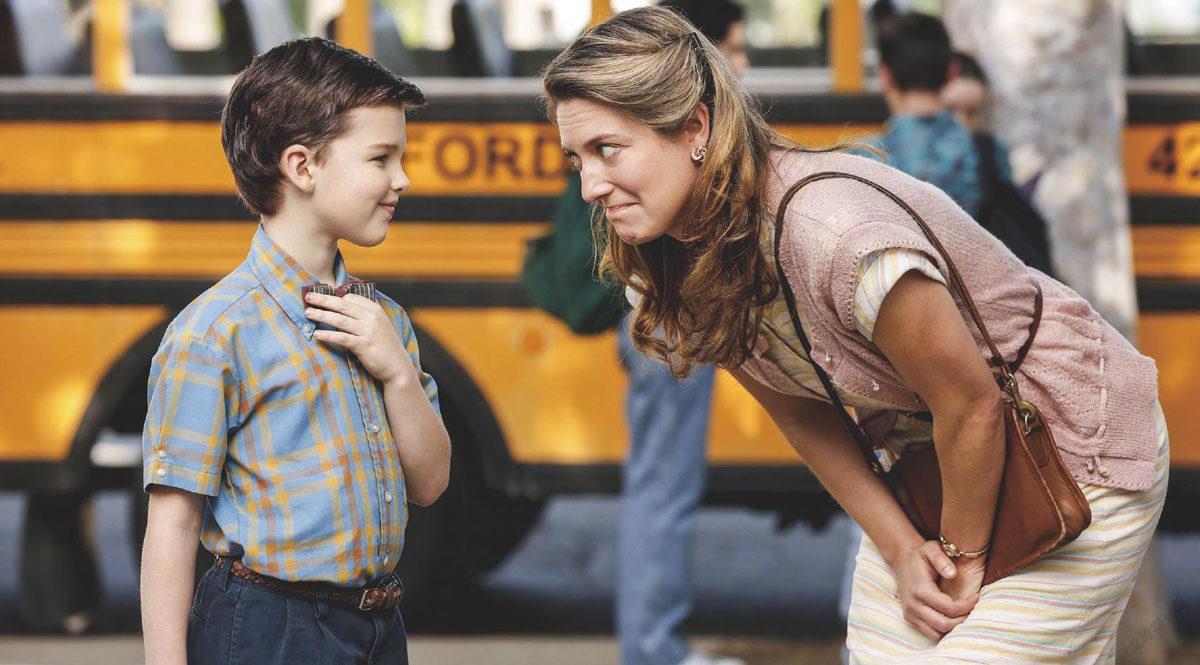
Mother:Lord, look after my son.Don't let him get stuffed in a gym bag.
Sheldon(Young):Oh, dear.That boy has an7)exposed 8)tattoo.
Mother:He does.
Sheldon(Young):I wonder if he knows that' s in violation of the dress code.
Mother:Speaking of which, how about we lose the bow-tie?
Sheldon(Young):Why?
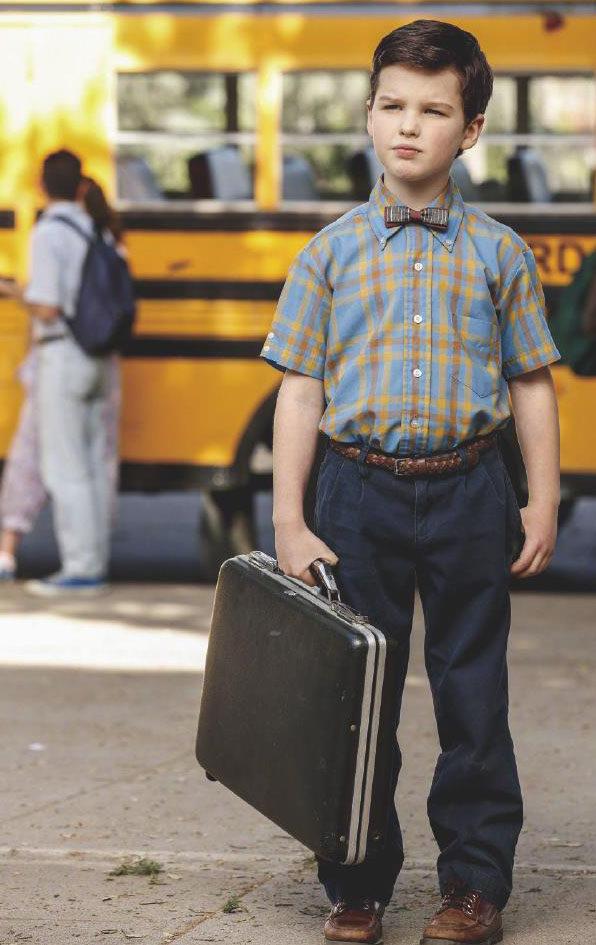
Mother:Look around, honey.None of the other kids are wearing one.
Sheldon(Young):Well, perhaps I'll start a 9fad.
Mother:No, you won't.Please trust Mommy.All right, tell you what.You take it off, and this weekend, I'll take you to RadioShack.
5)intimidate[n'tmldert]vt.恐吓,威胁
6)intellect['intalekt]n.智力,才智
7)exposed[k'speuzd]adj.暴露的
8)tattoo[t’tu:]n.文身
9)fad[faed]n.时尚,一时流行的狂热
谢尔顿(少年):你想玩一个车上游戏吗?
妈妈:不太想。我总是输。
谢尔顿(少年):我知道啊,所以才好玩。比如,找车牌号码是质数,后面是……
妈妈:我们就聊天行吗?
谢尔顿(少年):好的。
妈妈:学校里会有人因为你太聪明而感到威胁,你明白吗?
谢尔顿(少年):或者他们也有可能认可我的聪明才智,进而推选我当他们的带头人。
妈妈:主啊,保佑我的孩子。保佑他不被人塞进运动包里。
谢尔顿(少年):天啊!那个男生有露出的文身。
妈妈:是啊。
谢尔顿(少年):我怀疑他不知道那样违反着装规范。
妈妈:说到这个,咱们就别带领结了好吗?
谢尔顿(少年):为什么?
妈妈:亲爱的,你看看大家,没人戴领结啊。
谢尔顿(少年):或许我可以引领潮流啊。
妈妈:你不会的,请相信妈妈。好吧,这样吧,你如果摘下来,这周末我就带你去逛睿侠电器行(美国老牌电器行,主要卖电器与各种線材)。
名师考点解析
none的用法
剧本原文:None of the other kids are wearing one.
当你把none of当成是个整体时,就用is,如果你把none of看成是里面的每一个人时,就用are。
不要混淆none和neither。
none是对三个或更多的人或物的否定。noneof的用法与none相同,后接表示一组人或物的代词或名词短语,如:None of them had learned anything.他们所有人都什么也没学到。
neither是对两个人或物的否定。例如:Neither had close friends at university.两个人在大学时都没有亲密的朋友。neither of的用法与neither相同,后指两个人或物的代词或名词短语,如:Neither of them spoke.两个人都不说话。
注意可以在单数可数名词前使用neither。如:
Neither side can win.双方都赢不了。
Know More
为什么妈妈要求小谢尔顿别戴领结?小谢尔顿认为领结代表着自己的内涵与对高一开学的重视,然而妈妈认为过于正式反而会让小谢尔顿成为“异类”。
领结起源:领结起源于17世纪欧洲战争时期的克罗地亚雇佣兵,他们使用丝巾围绕颈部以固定衬衫的领口,这方法逐渐被法国上流社会所采用,法国当时领先于时装业,领结在18世纪及19世纪更为盛行。19世纪末期,领结的末端变得越来越长,渐渐演变成领带,领结则逐渐变得不再时兴,只有建筑师的社群继续佩戴,因为它是建筑师制服的一个重要部分。著名法国作家巴尔扎克曾为领结撰写过一本书。
领结佩戴场合:在正式场合的晚宴中,需要佩戴领结,但却并不一.定是黑色的。领结在流行文化中,有时被视为有内涵的象征。

